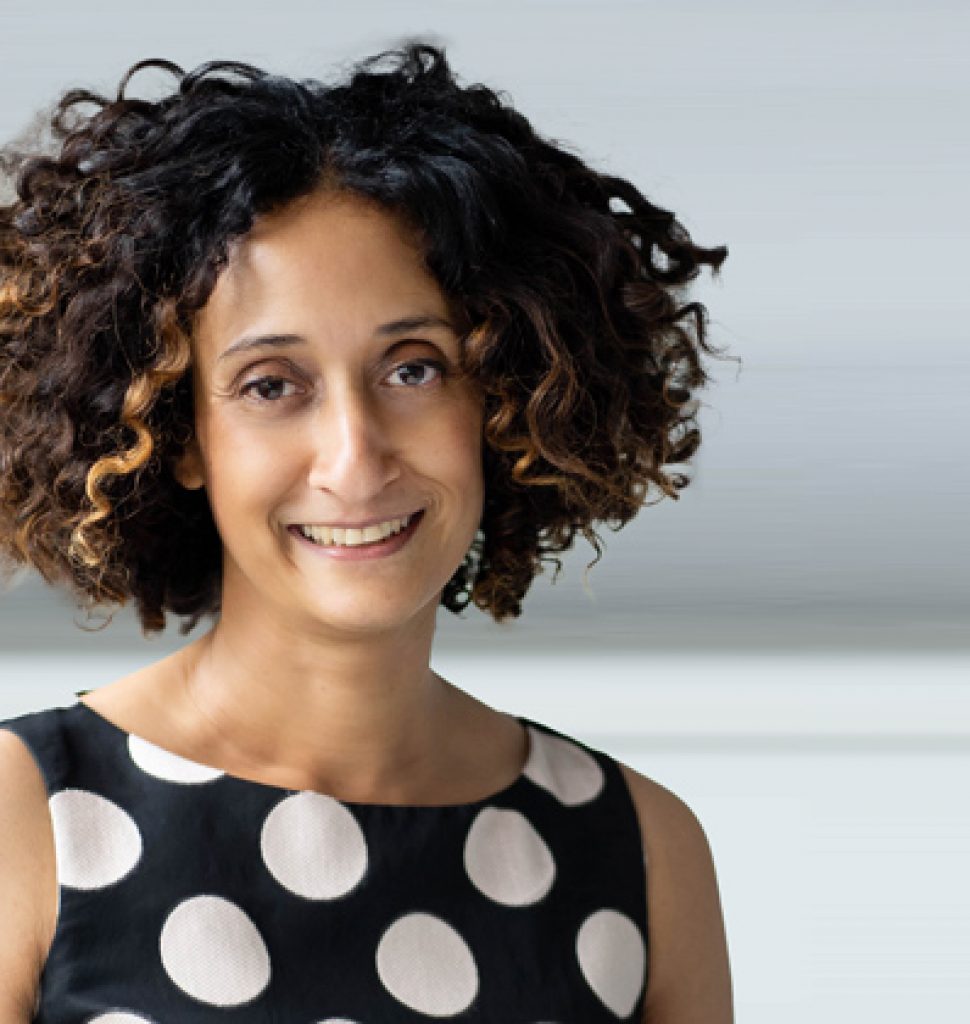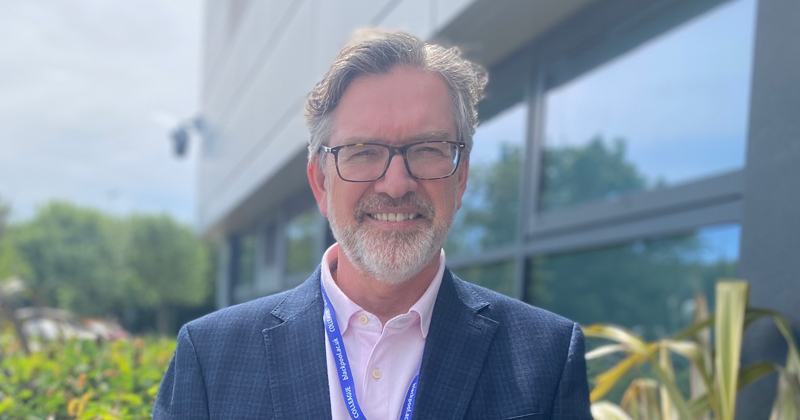School leaders who complain about having to do washing and buying food for their pupils should “shut up”, the social mobility chair has said.
In an interview with sister publication FE Week, Alun Francis also fears Ofsted’s new focus on inclusion will lead to schools having to “bend over backwards to accommodate everybody”.
Francis, CEO of Blackpool and the Fylde College, took over the chair of the social mobility commission from headteacher Katherine Birbalsingh. She resigned in 2023 saying her controversial opinions were “doing more harm than good”.
Francis has been less outspoken, at least until now.
‘Shut up’ about washing and providing food
“When I hear schools talking about how much they have to do the washing and buying people food, I think, ‘shut up’,” Francis says.
“Everybody’s always done that. Be discreet about it when you need to do it. And, of course, everybody does it when you need to do it.
“But stop making out that your life is so difficult, because what they’re saying is, ‘the results here are not that good, because look at the people that come here’. It’s not an excuse.”
Francis asserts that “half of the education system is turning into a therapy centre. Our job is not therapy… People come to college to learn – that’s the best therapy we can give them.”
Inclusion push worries
Francis sits on Ofsted’s inclusion external reference group, but takes an opposing line to many of its members.
He believes the watchdog’s current focus on inclusion will mean schools and colleges having to “bend over backwards to accommodate everybody”.
“The inclusion I’m worried about is the poor kid that comes in wanting to work hard, but the rest of the class are messing about and won’t let them. How is that inclusive?”
Francis claims there is “embarrassed silence” when he poses this question to Ofsted.
He is also concerned about “a lot of crackpot theories going around the inclusion world at the moment”. He claims that “trauma-informed practice” is one of these, which he says has become widespread in FE colleges.
Francis, who previously led Oldham College which sponsored two schools, says that “if you let [those young people] behave in daft ways, they’ll do that more”.
Concerns over mental health ‘snake oil’ solutions
He is also concerned about so-called behaviour management “experts” cashing in on young people’s perceived mental health problems. His inbox is “full of people writing to me with all kinds of snake oil”.
Francis is also concerned about a sense of “learned helplessness” among young people, particularly those who fail their English and maths GCSEs and falsely believe they are “rubbish” at them.

Francis shares Birbalsingh’s disdain for what they say is a national narrative of “victimhood”.
He gets “frustrated in education when everything’s about disadvantage”. This is “so badly defined”, he adds, that most of the time people “never actually work with the most disadvantaged – very often it’s about the polite poor, who will do well anyway”.
He accuses some prominent educationists of caricaturing working-class kids in a negative way, without taking into account the children from those backgrounds who display “model behaviour” and “amazing attendance”.
“The flip side is an equally insulting argument that middle-class kids are bland and achieve only because of their parents’ privilege. They are all caricatures. We want a world where every individual has the potential to achieve.”
‘Bad behaviour’ contributing to SEND rise
Francis backs controversial government proposals to overhaul disability benefits, estimated to plunge another 250,000 people into poverty, including 50,000 children.
He says Personal Independence Payment (PIP) was a “very spurious system” with people “sometimes acquiring, sometimes seeking label[s]” to boost their benefits.
“You can’t blame people for doing that, if that’s how the system works.”
He says some of the rise in pupils being seen to have certain special needs is down to parents seeking “external explanations for bad behaviour”.
But “pouring money” into more welfare support would not “get to the root of the other things sitting behind disadvantage – a lack of skills and the need for family support”.
“Not all disadvantage is about money. It’s about behaviour and being looked after properly.”
















Well said!!!!
Flabbergasted. He could have just openly stated that he hasn’t read the last 60 years of research in the sociology of education (particularly around social mobility), psychology, or economics. It would have been quicker and he would have sounded less callous. There is no shame in simply not knowing something, there is in… this.
The evidence is pretty conclusive. If you want to raise attainment and increase social mobility (which is a discourse I loathe, anyway, we should be focusing on building a society that works for everyone rather than individualising social risk), then you need to: improve the material living conditions of children, you need to do it as soon as possible in the life course, and you need a demand-side labour market strategy that creates a pipeline of skills to jobs.
Poverty matters. There are no ifs, buts, or maybes about it. Labour market structure matters. No ifs, buts, or maybes about it.
Wow!! Very well said and very well explained. This is the 1st time when I see honesty coming out of an educator’s mouth.
It’s time that the educational system takes a good look in the mirror and understands that there is a huge problem. Yesterday I was talking with a young guy at work, and he basically said the same thing, he wanted to learn more, but because of disruptive colleagues that “go to school just to cause trouble” him and others in his class were let down by the system.
I hope that this conversation doesn’t stop here.
Some good points around behaviour. However, I don’t think that ignoring the issue of disability is going to make this issue go away. Many academy schools already do not cater to and off-roll disabled students in order to gain excellent results. How does it help SEN students if they are simply all labelled as ‘bad apples’ and not allowed access to the same quality of education as everyone else? I am not against discipline at all – all children need this.
Nevertheless, disabled children shouldn’t be victims of a culture war that aims to deny that difference and disability exists and has an impact on outcomes for these students.
The confusion between SEN and bad behaviour is also due to the fact that teachers receive so little relevant training on the subject. When I trained to teach, there was no evidence based instruction on how to teach SEN students as part of the course. And there was no ongoing CPD about the issue that was actually useful or improved grades.
After retraining as a dyslexia teacher I discovered that catering to SEN students doesn’t have to mean lowering standards or sacrificing good results for the rest.
Katherine Birbalsingh’s own school uses the Hochman-Wexler method to teach literacy across the school – a method specifically developed by a dyslexia specialist to teach children with dyslexia in the USA.
Her great test results are testament to the power of a school built around real inclusion and evidence based teaching for SEN students.
Her results are a product of a whole-school adjustment to cater for students with dyslexia and literacy difficulties, which is great and what all schools should be doing.
Finally, somebody talking commonsense. Too many kids nowadays are dragged up by a parent who is probably a kid themselves. What’s that old saying you reap what you sow.